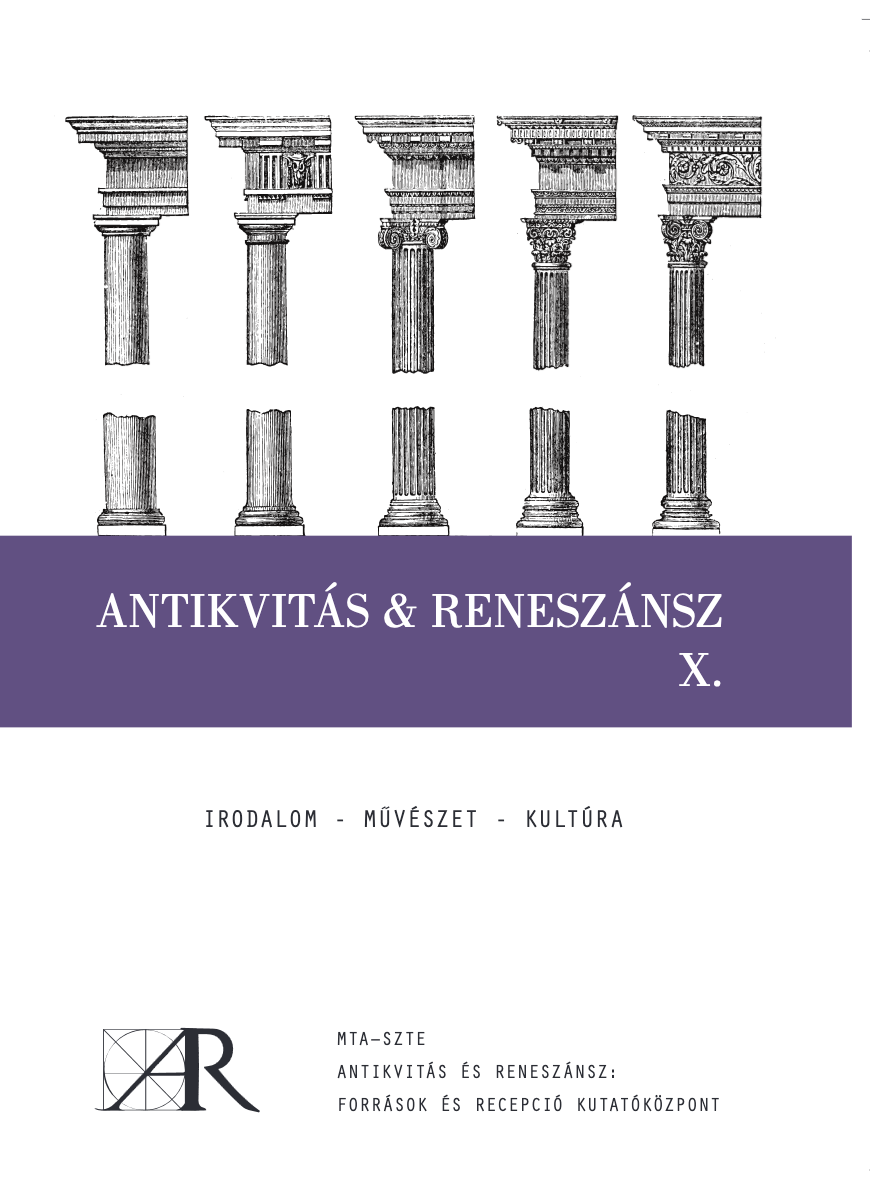Picatrix Readers: the Survival and Impact of a Magic Book in the Works of Renaissance Thinkers (II) A Picatrix olvasói (II): Francesco Cattani da Diacceto, Ludovico Lazzarelli, Johannes Trithemius, Cornelius Agrippa, Paracelsus, Giordano Bruno és Tommaso Campanella
Main Article Content
Abstract
This study seeks to answer the question: how was the reading of Picatrix present, and how did it affect the coming centuries? The first part of the paper was published in the last issue of A&R. It focused on Ficino and Pico, the two 15th-century philosophers who, through their work, gave authority and credit to the so-called "Learned magic" in the eyes of their contemporaries and immediate descendants, so the survival of Picatrix and similar magical writings, albeit mostly through secret channels, was assured. This is the second part of the study. After discussing Francesco Cattani da Diacceto, Ludovico Lazzarelli, and Johannes Trithemius, as well as the latter’s followers, Cornelius Agrippa and Paracelsus are examined. Then Giordano Bruno’s and Tommaso Campanella’s works are discussed that were inspired at least in part by Picatrix. Finally, in a nutshell, the research results of Benedek Láng are presented, as are those of Márton Veszprémy on the Picatrix’s copies of Central Europe.
